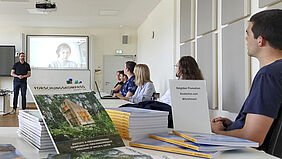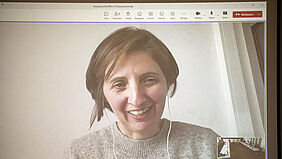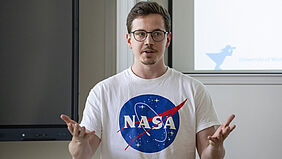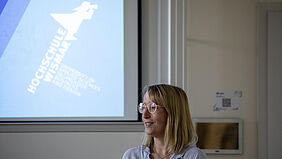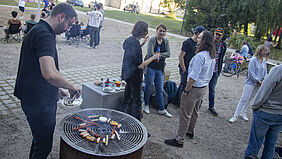Three of the approximately 40 cooperative doctoral candidates at Wismar University of Applied Sciences demonstrated in their presentations how they are driven by their inner motivation to engage intensively with a scientific topic and find new solutions to societal challenges:
In her presentation, architect Ivett Flores-Núñez (supervisor: Prof. Martin Wollensak) showed how she is developing concrete strategies for the energy transition in the construction sector with her doctoral project “Building Stock – Low Energy Demand Model through Renovation Strategies for the Building Envelope.” The work of Niklas Huhs (supervisor: Prof. Dr.-Ing. habil. Olaf Simanski), on the other hand, contributes to the use of AI in the evaluation of medical data in the context of ambient assisted living, i.e., technology-based support for elderly or vulnerable people in their everyday lives through intelligent systems integrated into the living environment. Lisa Marie Rickerts' doctoral project (supervisor: Prof. Dr.-Ing. Tassilo-Maria Schimmelpfennig) also falls within the field of medical technology. She is working on “Process engineering and technology for the cutting production of individual bone implants” to enable precise adaptation to the individual anatomy of patients.
Many of the doctoral candidates work as research assistants in research and teaching at Wismar University of Applied Sciences, are funded by doctoral scholarships, or are working on their doctoral theses alongside jobs outside the university.
After the presentations, the participants exchanged experiences, goals, and wishes in a relaxed atmosphere at a barbecue evening. Despite the diversity of their fields, they found many common topics and were able to give each other helpful tips and advice. The meetings are organized by Jan Oestreich, Advisor to the Vice Rector for Research. (jo)

